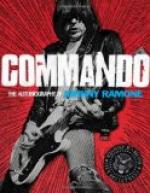In the Moot our horses died in such numbers—particularly the ‘unsalted’ mares—that many of our men had to walk. On March 10 my faithful brown pony Steenbok died of horse-sickness. For over a year he had carried me through thick and thin, and I could not bear to see his suffering. A few weeks later we got another lot of horses; I will not mention how, as the information might fall into the hands of the enemy. The people who still lived on their farms often told us that the few remaining fowls instinctively recognised khaki as an enemy, and made for the hedges and shrubs whenever they caught sight of him. So here, also, Nature looked after the survival of the species. The cows taken by the enemy also made their way back to their calves that khaki stupidly left behind, and so the little children could again have milk. Even the bees were not left undisturbed; but the bee is an enemy of any nasty-smelling thing, and therefore the dirty, perspiring khakies got many a sting, and the honey usually remained in the hives.
The enemy probably thought that we were helpless in our poverty. But a Boer is not easily made helpless. We patched our own shoes and carried the lasts about with us. Horseshoes and nails we made from the tires of wheels and telegraph-wires. Instead of matches we used two stones. When the enemy have burned and destroyed all our corn-mills, we will still have coffee-mills, and when those are gone we will do as the Kaffirs do, and grind our corn between two stones—and crushed and roasted maize is very good to eat.
The old Voortrekkers wore trousers made of untanned hide. We can do the same if khaki does not supply us with sufficient clothes. Our wives and children and our exiled men we cannot get out of khaki’s hands, and that is the greatest difficulty in our way.
One of the greatest advantages we have over the enemy is that we are among friends, and can move about in small troops without having to depend on a base of operations, whereas they do well not to divide themselves in too small groups, or to venture too far from their base—even in large numbers.
The services in our camp were held by the Rev. Mr. Naude—a man who kept the courage and the moral sense of the burghers up to the mark with his meek Christian spirit. He also formed the debating club that was such a welcome recreation to us. We often thought that the enemy would be surprised if they could know of the debates we had—for instance, ’Must the “hands-uppers” be allowed to vote after the war is over?’ ’Must the Kaffirs or natives have more rights?’ ’Is intervention advisable under the circumstances? etc. The men in the neighbourhood of Tafelkop were mostly ‘hands-uppers,’ so we confiscated their property, and their grain and cattle we took for the use of the lager, but we always left sufficient for the use of the women and children. The future of a farm on which a lager had camped for some time was dark indeed, for even the grain in the fields was destroyed by the demon of war. If the owner of the farm were not a ‘hands-upper,’ our officers usually succeeded in preventing the destruction. Sometimes the pulling up of the fencing was inevitable, as we were so short of fuel. The Boer women were sometimes forced to accept the protection of the enemy, after their farms and property had been destroyed by friend and enemy alike.




